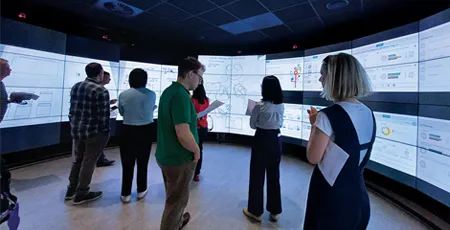Art of the possible
We have never been at a more pivotal moment in business, says Ismail Amla.
As a business leader, if you could do anything you could possibly imagine, what would you do?
This might sound a rather trite question to ask. But the reality is that the intersection of business and technology today has reached such a pivotal point that the realms of what is actually possible within organisations and companies is enormous.
How leaders actually respond to what is possible goes to the heart of what sorts of propositions and experiences they want their customers to have in the future.
In my view leaders face two key questions. Firstly, how do they make sense of all the signals coming from the huge digital transformation we are living through, such that they can fully understand how it will impact their organisation?
And secondly, what are the unintended consequences for society of making those decisions? For instance, what capability do we have to roll back our actions, say, around the sharing of data and privacy, given that regulation always lags innovation?
Role of business schools
The consequences of how leaders answer these questions are profound, just as they equally are for educators and business schools. The role of business schools is changing from 'let's teach the language of business', to exploring the consequences of this intersection between business and technology.
It's precisely the reason why I am thrilled to be taking up an honorary professorship at AMBS to explore these themes further.
I am fascinated in driving discussion and research around what business strategy really means when timeframes and business cycles are so short, when the pace of change is accelerating all the time. What will next generation business strategy look like? How can we use research to understand how to make better decision-making?
Data versus theory
Data is everything today and, put simply, if data is challenging your business theory then you need to change your theory. What you have done in the past isn't necessarily what you are going to be doing in the future.
One of the biggest drivers within the context of business strategy is the increasing prominence of 'agentic AI' – AI systems that are capable of autonomous action and decision-making, and where AI agents work with other AI agents to perform a specific task.
In the future, countless business services will become 'AI native' where no person is actively involved. Take the example of renewing your passport. The whole process will be done automatically such that you yourself won't need to do a thing. One day your new passport will simply land on your doormat.
An AI native world starts with no people, and that requires a different business strategy. Every organisation will have to determine what their business will look like in the future and how many staff they will employ.
Don't get me wrong, AI will not completely replace people. But within organisations, people with AI will replace people without AI. As such it becomes even more critical that we ensure there is correct transparency and ethical safeguards in place in terms of the prompts we give to AI tools, and that we ensure AI is as responsible as possible.
Changes in teaching
The way we teach will clearly have to change too. At primary and secondary schools we have been teaching by rote for far too long. Instead, we need to teach students how to think.
This applies equally to business schools. Students need to develop an ability to unlearn and relearn, while it is critical that they maintain an open mind. And we need to be teaching courses that are flexible enough to respond to the huge changes we are seeing, because what they are learning today might not be relevant in 12 months' time.
In my new role I will certainly be getting involved in teaching and seeing how our MSc and MBA courses can really respond to these challenges.
As an alumnus of AMBS I am incredibly proud of what both the business school and The University of Manchester has achieved throughout its history. And today we are ideally positioned to deal with the great challenges and opportunities that we face, and to play a key role in informing decision-making.
I am also proud to be appointed an Honorary Professor at AMBS during such a transformative moment, not only to explore these big questions but to do so in partnership with students, faculty and business leaders. Together we have a unique opportunity to reimagine what it means to lead, to learn and to build in an AI-native world.
Tags:






